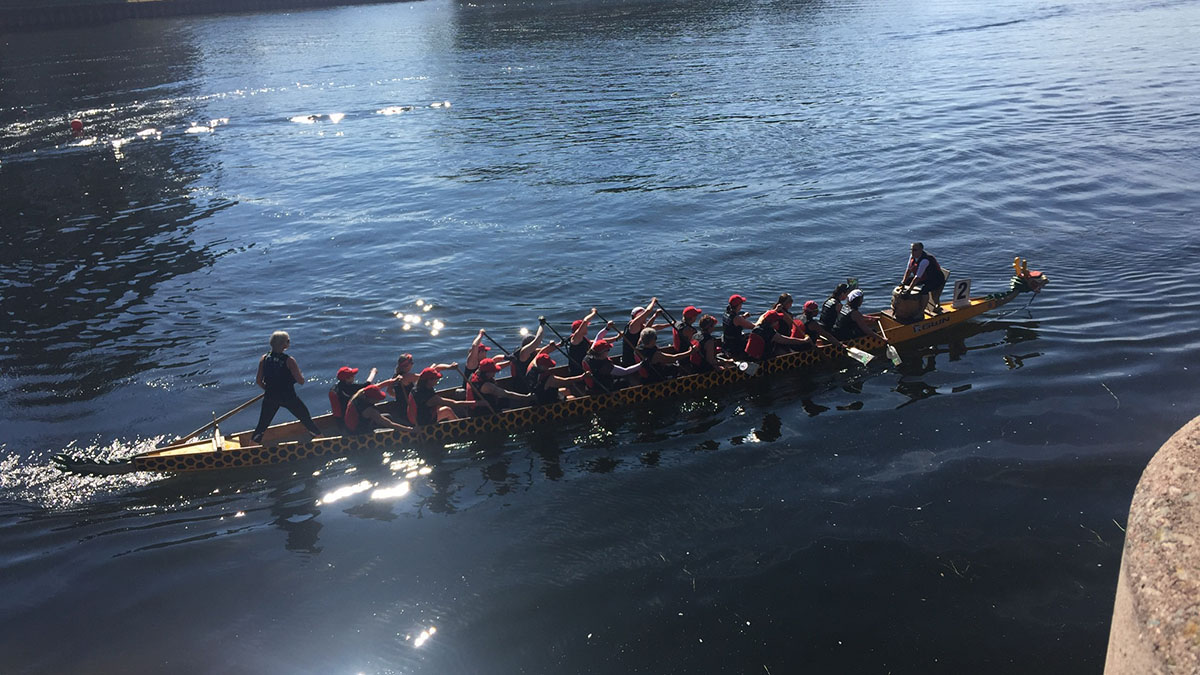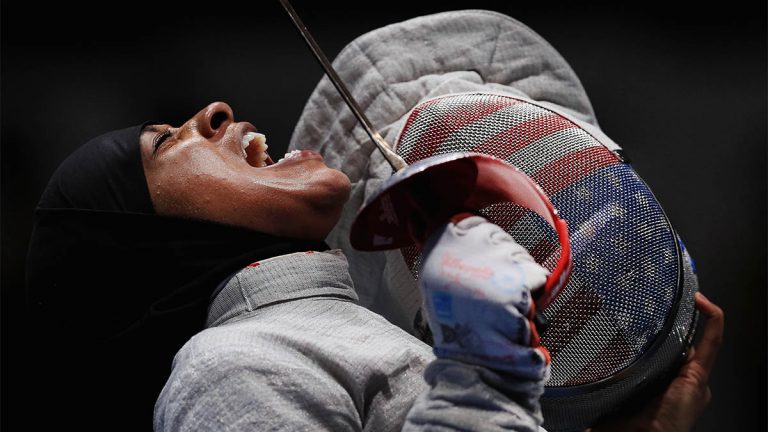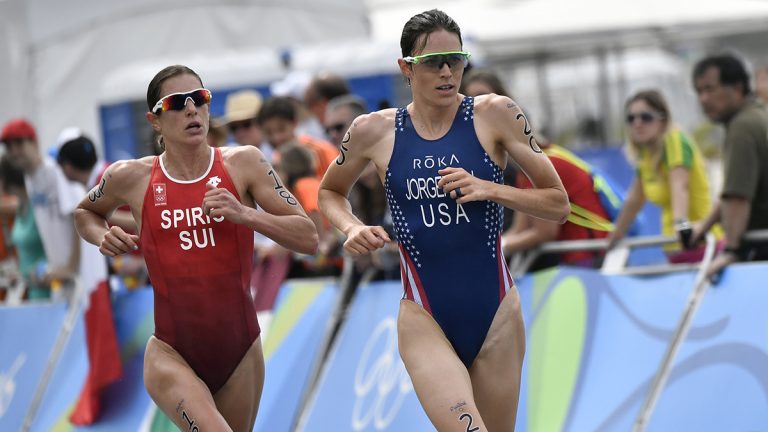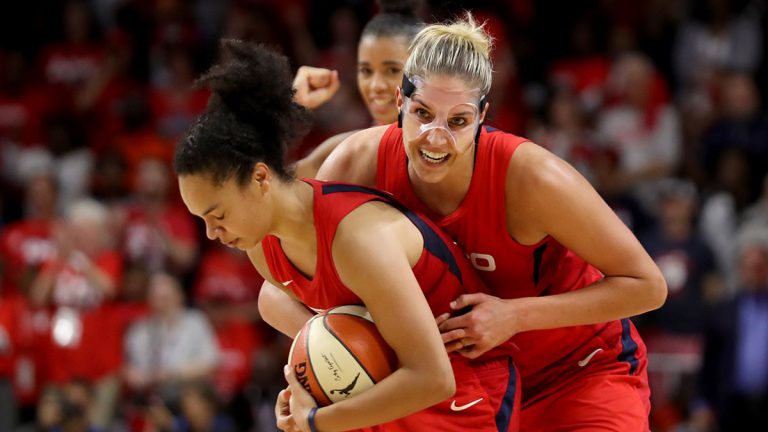Cancer survivors reclaim their power through sports
Cancer is the six-letter word that can stop someone in their tracks. But after hearing a diagnosis, or after treatment begins, how can a patient find the strength and focus to be who they were before they were sick?
The American Cancer Society encourages physical activity during and after treatment, noting exercise can offer physical and mental benefits. “It’s good for us mentally, physically, emotionally, and spiritually,” Susan Switzer, a breast cancer survivor, said. “Sport is a remedy — a prescription that every doctor should be giving their patient when they get a diagnosis.”
“In the past, people treated for cancer were told by their doctor to rest and reduce their physical activity,” said Anikar Chhabra, the director of Sports Medicine at Mayo Clinic Arizona. “What we’ve learned is that too much rest leads to loss of body function, muscular weakness, loss of motion in your joints and stiffness leads to pain,” and research has shown that exercise is beneficial, he said. Now, doctors are saying, “Go and try to do things,” he said.
“When you’re going through cancer treatment, you often feel powerless,” said Switzer, a member of Empire Dragons NYC, a group of breast cancer survivors who paddle dragon boats. When Switzer joined the team, she found a group of fellow survivors who reaped the physical and mental benefits of engaging in sport.
Dragon boat racing requires intense physical fitness, so participants get a lot of exercise, and some didn’t exercise consistently before joining. Beyond the physical benefits, paddling the boat allows participants to “claim their power,” Switzer said. “This is a way to realize, ‘Wow, I am much more than my cancer. I am strong, and I am powerful, and I can do this.’”
The Empire Dragons NYC group includes more than 40 breast cancer survivors of various ages. Dragon boating “pushes you beyond the level of what you think you can accomplish,” Switzer said. “It gets you out of your head and into your body.” Now, the team is gearing up for a competition in Italy in July. They are one of 166 dragon boat teams of breast cancer survivors — across five continents — that make up the International Breast Cancer Paddlers’ Commission.
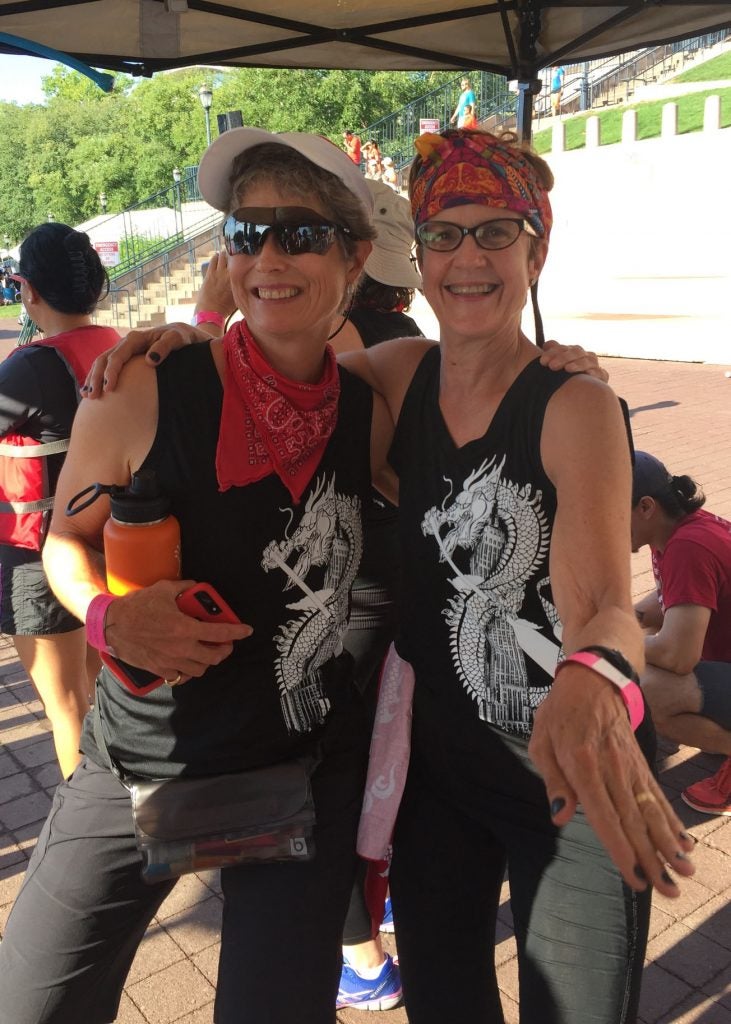
Different types of cancer affect the body in different ways, and exercise should to be tailored to the individual, taking into account his or her treatment, preexisting fitness level, and other considerations. “Your physician should be there to tell you what’s safe and what’s not,” Chhabra said.
Recovery on Water (ROW) is another organization that gets breast cancer survivors on the water, but in different boats — rowing shells. The organization includes a year-round team in Chicago and a four-day camp in northern Michigan, and “it’s as much about exercise as it is about support,” said Jenn Junk, executive director of ROW.
“A lot of times, women don’t feel like they can trust their bodies, that their bodies have betrayed them,” Junk said. But in ROW, they are “using their bodies to move forward with their lives.”
The Chicago-based team includes 85 people whose ages range from 28 to 72.
“Rowing requires a lot of teamwork and coordination,” Junk said, adding she has seen participants “become part of a team for the first time in their lives, become athletes for the first time, and establish a new identity for themselves — someone who’s a rower.”
The challenges inherent in rowing give participants “a daily exercise in handling frustration,” said Charley Sullivan, a rowing coach who consulted for ROW and helped establish a camp in partnership with them.
“When it’s not going the way you want, what can you do? How can you handle it? It sounds sort of odd to say, ‘You’re a woman who’s been having these major, very scary health issues, and we’re going to put you in a situation where we’re going to stress you even more,’ but it’s a safe place to be under stress.”
Sullivan has seen breast cancer survivors handle the frustrating moments, and support each other in the process, beautifully. He remembered that toward the end of a camp, after the rowers “had made these enormous strides, we were working on how to row technically so you can feel the power of the boat — and it ceases to be a struggle and becomes an expression of your power, an expression of you working together with other people.” He called to them from the coaching launch, “Wow — just enjoy your bodies being powerful,” and a few of them started crying. It was a reaction he didn’t expect, but it inspired him to tell rowers in other contexts when he notices them looking especially powerful.
Rowing also offers “blindly transcendent moments,” Sullivan said. “The boat is moving; the sun is about to set; and you get that hush, that quiet — there’s something about getting outside on the water, even in the middle of urban Chicago — that can have those effects.”
Empowerment is part of what the organization First Descents offers through free, life-changing adventures for young people (ages 18-39) affected by cancer. This includes adventure trips in the U.S. and around the world, as well as shorter weekend events in several communities. All are geared specifically toward young people.
“We’re trying to nurture supportive peer relationships and to provide peak adventure to young adult cancer survivors in an effort to have them lead the life they envisioned before they were sick,” said Ray Shedd, First Descents’ director of development and marketing.
Most support groups for cancer survivors are designed for older people, said Jamie Stec, a breast cancer survivor who has been on four First Descents trips, two as a participant and two as a volunteer. “First Descents reminds you that other cancer survivors are still young and vital in every other part of their life,” she said.
Stec appreciated the supportive environment that allows participants to share their experiences with each other. “It’s therapeutic, but it’s not therapy,” she said. “It’s akin to a camp experience, and camp can be intense. But this is an extra layer of intensity because it’s people who have been diagnosed with cancer. You bond very quickly.”
First Descents teamed with the University of Michigan to conduct research to evaluate the psychosocial benefits of its programming and found that participants’ self-esteem, body image, and ability to cope with cancer and its ongoing effects increased while depression decreased. They have seen “a decrease in overall psychosocial distress, which is a very significant comorbidity of an oncology diagnosis for young adults,” Shedd said. These adventures yield “social, emotional, and physical capital” that help participants thrive.
Activities include kayaking, climbing, windsurfing, hiking, bikepacking, and ski mountaineering — which most participants don’t have experience doing. “Adventure sports are innately empowering,” Shedd said. “The secret sauce of our programming is the brutal, cold indifference of nature. We don’t dumb anything down because our participants are sick. We make everything fully accessible and fully adaptive, but those Class III rapids aren’t going to calm down because there are boaters who have cancer. That rock face isn’t going to get any softer.” And participants face these challenges “with the tremendous support of their peers, fellow survivors.”
On some trips, “there’s no one else around, so it creates this environment of pretty profound detachment from the world you knew back in the hospital, where you were being treated,” Shedd said. And it encourages social connection with “peers who understand not only what you’re going through from a medical standpoint but also what it was like to do that sport that day.”
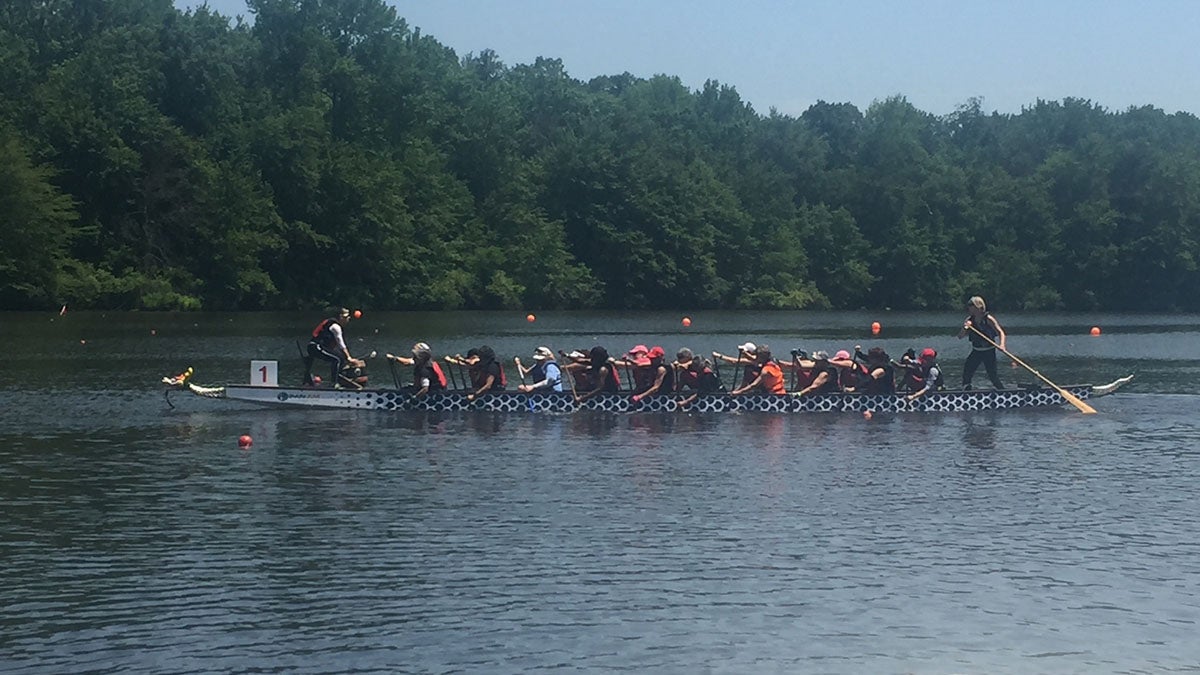
Stec’s initial First Descents trip took her whitewater kayaking in Montana. Because whitewater kayaking is challenging, even for people who are highly active, the river puts everyone on the same level, she explained.
“You can’t muscle your way through the rapids — you have to finesse your way through. So much of whitewater kayaking is working with the river, not fighting it,” Stec said. “For people with control issues, that’s a very important lesson to learn — to work with an obstacle instead of fighting against it.”
Stec is an endurance runner who is training for the New York City marathon, and she likened her breast cancer treatment to marathon running. “My experience endurance running was helpful in managing the endurance of chemo and radiation,” she said.
On a New Zealand trip, Stec and her group filled their days with a long list of adventure activities, including kayaking next to seals and jumping off cliffs into swimming holes. She described it as “transcendent — doing the most amazing things in the most scenic location on Earth.”
“One participant summed it up as the most beautiful place she’s ever been, and she had to go through a lot of (stuff) to get there,” Stec said.
Shedd remembered one young woman from the south side of Chicago who had been diagnosed with bone cancer when she was very young, requiring an above-the-knee amputation. “She was bullied and picked on all her life as a result of having a prosthetic limb, and she felt isolated and marginalized.”
Then she was diagnosed with breast cancer as an adult, and “she had a very invasive series of surgeries and treatment process that further compounded that isolation and anxiety.” On a First Descents trip to Montana, “she found such beautiful grace with her body again — in a kayak,” Shedd explained. It was a transformation for someone “who felt her body had just been brutalized by this illness, years of invasive surgery, and parts taken from you — to be able to know you are still a mighty one.”
“Many of our participants go on to embrace adventure sports as an ongoing part of their healing process,” Shedd said. First Descents is working with health care providers to get their programs introduced to cancer survivors earlier to “mitigate some of that psychosocial distress, depression, alienation, isolation so common in young adult survivors,” he said. “One big question continues to guide our thinking: What if we prescribed adventure to complement life-saving treatments and clinical care?"
“Most people who undergo rest and more sedentary activities tend to have a higher risk of heart disease,” Chhabra noted. Exercise “can improve your vascular status, with blood flow to your limbs, and it also can be mentally cathartic — it can help get your mind off of things. It’s been shown that exercise decreases depression, it can lessen nausea, and it can help with social interactions.”
“Most cancer centers realize the value of a multidisciplinary approach to cancer treatment,” Chhabra said. “Here at Mayo, we have a robust team of oncologists, radiation therapists, surgeons, social workers, and psychologists,” who work together to “optimize not only their physical health but also their mental health.” The patient’s well-being is important, he said. “As surgeons, we’re taught to fix what’s broken or take out what shouldn’t be there. But it is much bigger than that.”
Allison Torres Burtka is a freelance writer and editor based in metro Detroit. You can read more of her work here.

